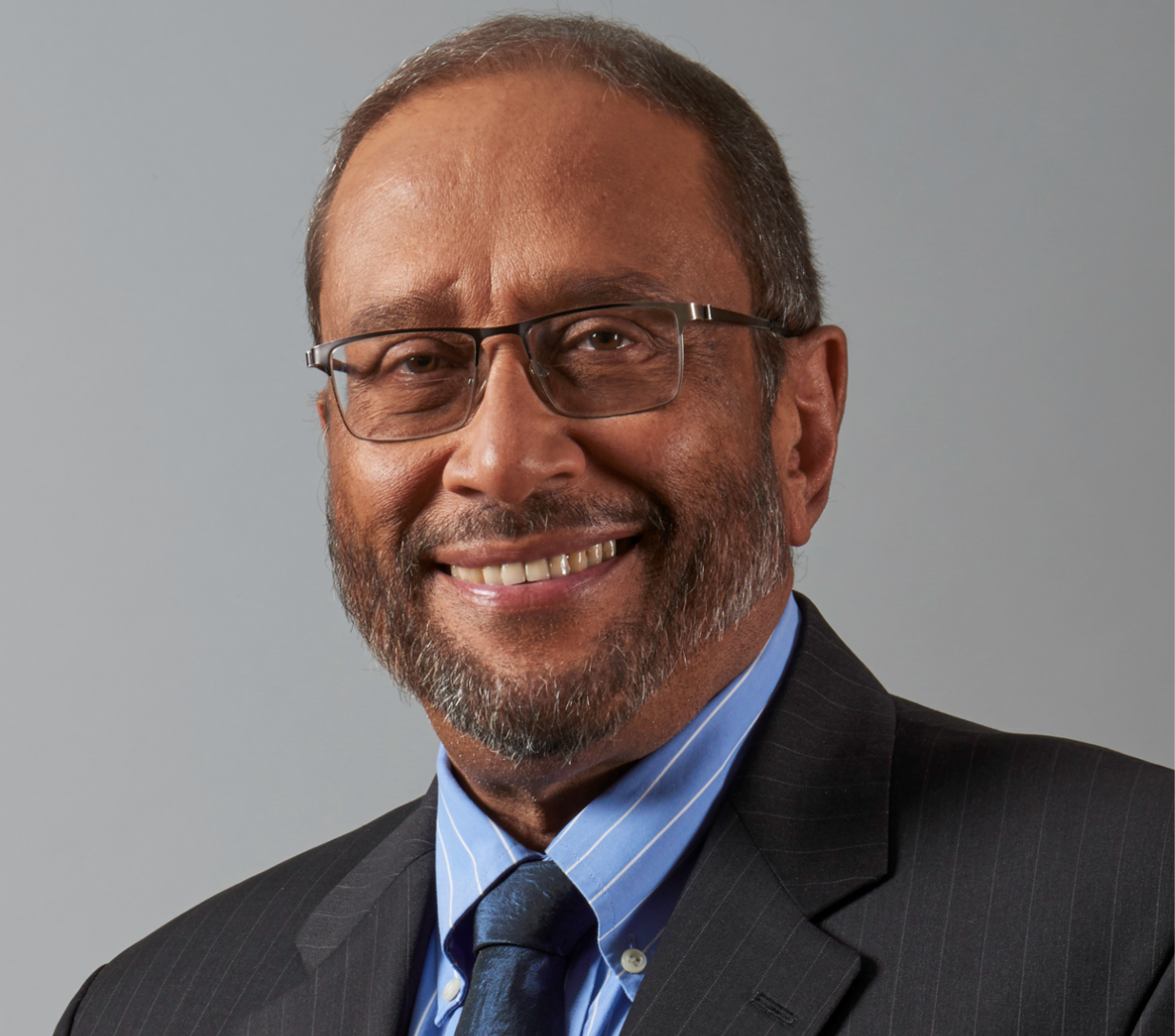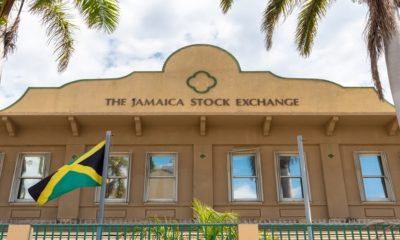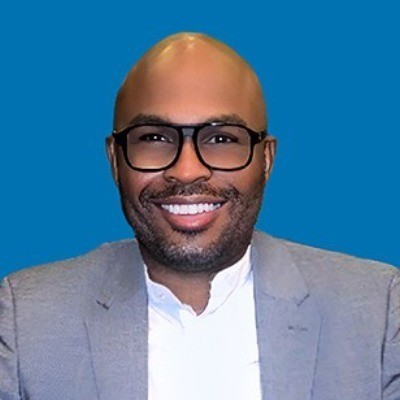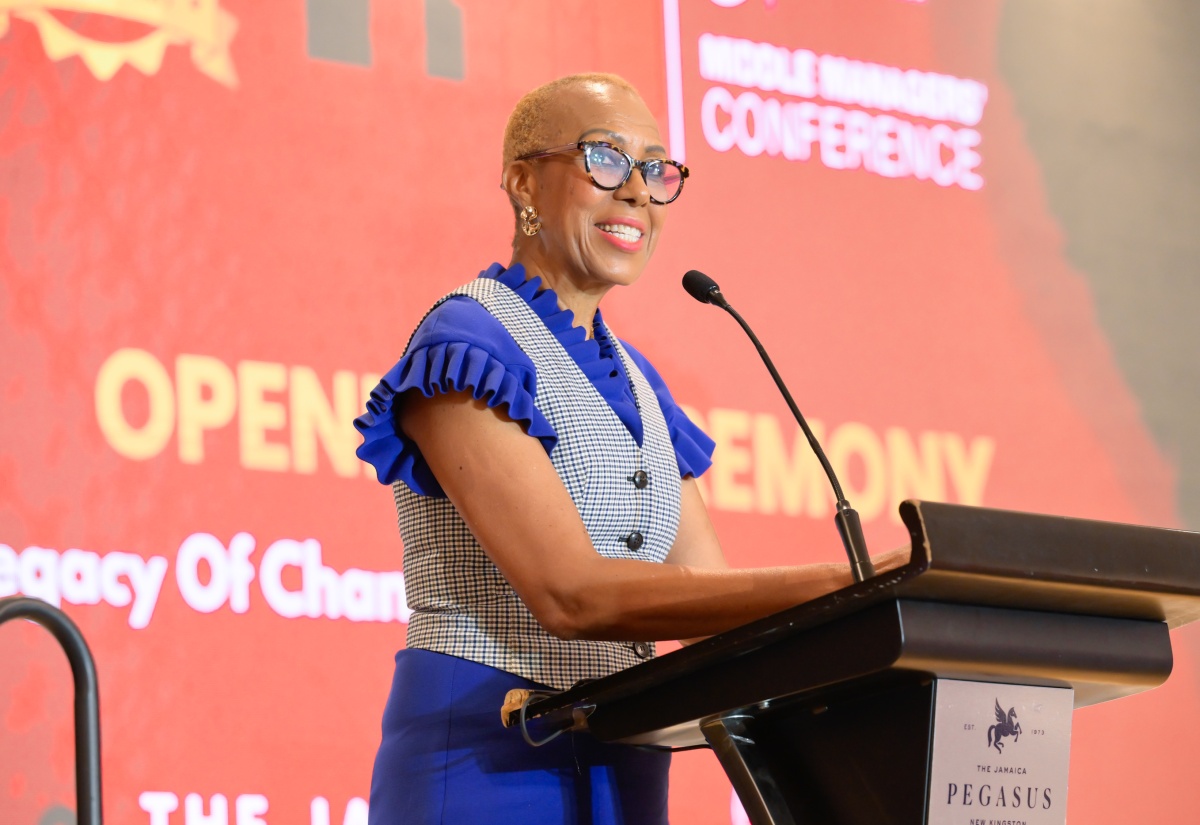ladies and gentlemen, I have noted that the title of opening plenary is: Entrepreneurship, Innovation And Growth: Unlocking The Potential In The Jamaican Economy. Implicit in this I suppose is the message that entrepreneurship and innovation have something to do with growth?
Is that an assumption that one could fairly draw?
Well I suppose that that is what we are currently hearing…we are told by the economic growth council to unleash our entrepreneurial spirit….we are told by the world bank to become more innovative….we are told by various members of the political directorate to take more risks and invest in new areas….so….it would appear that everybody is seeing the link between entrepreneurship and growth.
The private sector organization of Jamaica and the Jamaica banker’s association are finally reaching out to small and medium size entrepreneurs to get them to formalize their operations….all good…all commendable…but will it work? is it some form of magic bullet? or is it the beginning of a new paradigm that must be adopted by the entire society in order for us to secure our mature development as a society?
Let’s take a good look at where we are…lets set the historical context for the progress that we are trying to achieve….but first. let me take a moment to talk about the establishment of the access to finance facilitation panel that has been set up under the auspices of the PSOJ by the Jamaica bankers association with tremendous support from JMMB.
It is important to note that the current definition of the SME sector is business entities having between 1 and 50 employees and an annual turnover of less than one hundred and fifty million dollars….
The aim is to bring greater awareness of the SME sector to the governments access to finance reform agenda and to provide input and support for the adoption and expansion of the access to finance program across various stakeholder sectors through a process of education, facilitation and coordination…
The project has two streams. Access to finance…. and a reverse factoring program which is being developed in conjunction with DBJ …. receivables are a real big issue with SME’s….cash flow continuity is critical to the life of a small business…
We hope to foster better relationships between the banks and small businesses.
Simplify the credit processes to make them easier and more transparent for MSME’s …
We want to train the MSME’s in formalizing, regularizing and structuring their business processes and unlock additional capital to allow for business expansion…
The program has been rolled out and will continue with a series of workshops to facilitate all of the above and to create a user friendly and harmonious relationships among the stakeholders…
I am asking our business sector to suspend its cynical disbelief and support this program fully as it can be a valuable tool to reduce the marginalization and inequality in our economy …
Back now to our historical context.
I submit to you that every successful and progressive society stands on three pillars …three foundation stones…the state….the community and ..the market…the market being the private sector ( commerce)…
If those pillars or foundation stones are not properly balanced and proportional to each other the progress of the society will be threatened.
For a society to be successful…the state must be strong, effective, facilitative and corruption must be controlled…the community must be educated and skilled, united in common goals and the degree of marginalization and inequality must not be so great as to be an insurmountable barrier to the success of the average citizen with ambition and drive…
The market (the private sector) must be innovative…agile…well capitalized and technically competent and well regulated…
If these elements are not present…there is a great potential for social disorder…individualistic and selfish behavior, corruption and antisocial activity…
For almost all of the six decades since Jamaica’s independence, the pillars …the elements referred to above have been unbalanced…
We started out in 1962 with a fairly strong private sector…but one that was substantially foreign owned…
a state that was inadequate in its preparation …..and unsure of its purpose….and a community that was exceedingly marginalized and full of inequality…..and yes we had growth.
But i submit that we made the mistake then..that if we are not careful we will make now..we had growth that was not inclusive…and since then by various experiments and adventures we have built the state into a towering giant that attempted to control the commanding heights of the economy and is the largest employer of low wage workers….
As a consequence of our excursions into uncharted and strange waters, we squandered resources on various experiments and adventures…and we wasted our patrimony on badly executed attempts thereafter by the state to borrow money and spend its way out of a stagnating economy as well as a badly executed effort to liberalize the financial sector…
The state became an inefficient and corrupt behemoth …and the private sector became a co- conspirator in the corruption …dependent on the state for its existence and ignoring true entrepreneurial capitalist endeavors in favor of lending money to the state and living off licenses and special privileges…..all this while the community grew increasingly marginalized…and individualistic in its indisciplined and divisive behaviors….
There is no question in my mind that the near catastrophic failure of our economy up to the last decade is a consequence of the imbalance described briefly above, and it would be worth our while to effect a study of our economic history to elicit detailed lessons so as to prevent a repetition in the future….
It has been due to the disciplined and enlightened work of strong leaders from both our public and private sectors and the enormous sacrifice and pain of our ordinary citizens that we have drawn back a little bit from the edge of the precipice …..
And ladies and gentlemen…any medium size external or internal shock can easily draw us back into the abyss…..any major international crisis involving the north American market ….or volatile oil prices…any serious natural disaster …
or …our failure to control corruption and crime and violence in short order…. can take us right back to square one…..and worse…
So …today this is where we are in economic terms….
Inflation at the rate of 3.9% at the end of April GDP growth of 2% for final quarter of last year with a projection of 1.5% for first quarter 2019 ….PIOJ estimate of 1.9% for financial year 2019 interest rates at all-time lows….country running fiscal surpluses and cash reserves ratio reduced twice in last six months….country is awash in liquidity …. investment is increasing …real estate is booming …. banks are buying insurance companies…insurance companies are buying banks…employment is increasing…
So what’s the problem?
Well…folks…the problem is that we are still suffering from the same difficulty of inequality and marginalization….good things are happening…but they are only happening for a minority of our people in the business sector….and that’s not development is it?
It may be growth …but it’s not sustainable development…. this has happened before…we had growth in the nineteen sixties, but it excluded most of our people and created fertile conditions for the development of social disorder…growth must be inclusive…the door to development must be opened wider…
In Jamaica today we have a highly informal sector comprising some 43% of Jamaica’s GDP in 2006…probably more now if you look at the money flows that the banks are reporting …
Our SME’s employ 70% -80% of our workforce….they represent 97% of all tax paying entities and are a significant contributor to our GDP….
But….only they get 11% of private sector credit and only access 26% of bank loans….so the majority of our SME’s are outside of the economic blanket…. illegitimate children of our unbalanced society and our marginalized economy…
We don’t have time today to go into the cultural history of our economy and the reasons why the SME’s have been left out …but what we can speak to is that the consequences of that neglect include corruption and indiscipline…crime and a lack of national commitment…
Worst of all …. ladies and gentlemen…SME’s are the fertile incubators…the spawning grounds for innovation and entrepreneurship…so if they are stifled we are stifling our future…
Ok…so if you are following my logic so far ….and if you are still awake. Then you will agree that if we are to have real growth and development nationally …. we must grow our SME sector…and the ingredients for growth exist.
The fact is that since 2016 there have been over one hundred interventions to assist MSME growth and development …. ranging from access to finance measures taken by the DBJ through institutional strengthening efforts …access to markets assistance …. capacity building and the reduction of informality of their processes…. however, ……these measures have not been taken up by the MSME because of various reasons including but not limited to……… Lack of awareness. Uncertainty and fear…and inability to conform…
So…our task is to push the access door for them and it must be done.
The sustainability of our growth depends on it …. the mature development of our country depends on increasing equality and reducing the wide variances of wealth.
The only feasible way to break out of the low wage trap is to empower our entrepreneurs and innovators to monetize their ideas and access capital.
Foreign investment is welcome but it’s just that …. foreign investment brings capital but its value added is destined for elsewhere….
We at the PSOJ believe that it is our task to reach out to our new businesses and to nourish them to viability…the state cannot do it by itself.
It can create the right facilitative environment and we must push for that…but the state doesn’t understand capitalism and profit…the private sector does ….and we must take up the challenge and build our own future from the tremendous birth right of creativity and energy with which have been blessed.
Fundamental to this effort is the need to map and unleash the assets that are trapped in our inner cities and our market districts.
Much of our global renown for creative culture and our sporting accomplishments come from the inner cities…and yet we continue to ignore these talents and force them to take their skills to the entertainment capitals of the world.
We have trapped our best and brightest in the prisons of depressed areas and keep them there with states of emergency and politics…
If we spent one third of the money recently spent on infrastructure …if we had spent it instead on our human capital and improvement of the depressed areas. The return on capital. The reduction of crime and violence.
The modification of the deviate behaviours would be the growth rocket that we keep wishing for…ladies and gentlemen .it is people that create growth. Not machines…not money. It is time that we understand that successful capitalism puts people first …. that growth and development must strive for inclusiveness or else our efforts will contain the seeds of failure…
The time for new thinking is now…and the time to act differently is here…let us open our minds to the possibilities of our own people and give our entrepreneurs the fuel to make our growth sustainable…
thank you for listening.
Speech Given By Howard Mitchell, President The Private Sector Organisation of Jamaica To The 4th Business And Management Conference – Mona School Of Business And Management.
Jamaica Pegasus June 10th, 2019


 Businessuite Women2 weeks ago
Businessuite Women2 weeks ago
 Businessuite News243 weeks ago
Businessuite News243 weeks ago
 Businessuite News242 weeks ago
Businessuite News242 weeks ago
 Businessuite News24 International3 weeks ago
Businessuite News24 International3 weeks ago
 Corporate Feature3 weeks ago
Corporate Feature3 weeks ago
 Businessuite Markets3 weeks ago
Businessuite Markets3 weeks ago
 Business Insights2 weeks ago
Business Insights2 weeks ago
 Businessuite Women4 weeks ago
Businessuite Women4 weeks ago










 When Mr. Tyrone Wilson, Chairman, President, and CEO of Kintyre Holdings (JA) Limited, stepped into the additional role of Chief Executive Officer at Visual Vibe—alongside his existing portfolio—industry observers took note. His move, following the resignation of Chief Investment Officer Andrew Wildish, now consolidates strategic, operational, and governance control under one leader across the two connected companies.
When Mr. Tyrone Wilson, Chairman, President, and CEO of Kintyre Holdings (JA) Limited, stepped into the additional role of Chief Executive Officer at Visual Vibe—alongside his existing portfolio—industry observers took note. His move, following the resignation of Chief Investment Officer Andrew Wildish, now consolidates strategic, operational, and governance control under one leader across the two connected companies.
 1. Time Becomes Your Most Valuable Currency
1. Time Becomes Your Most Valuable Currency











